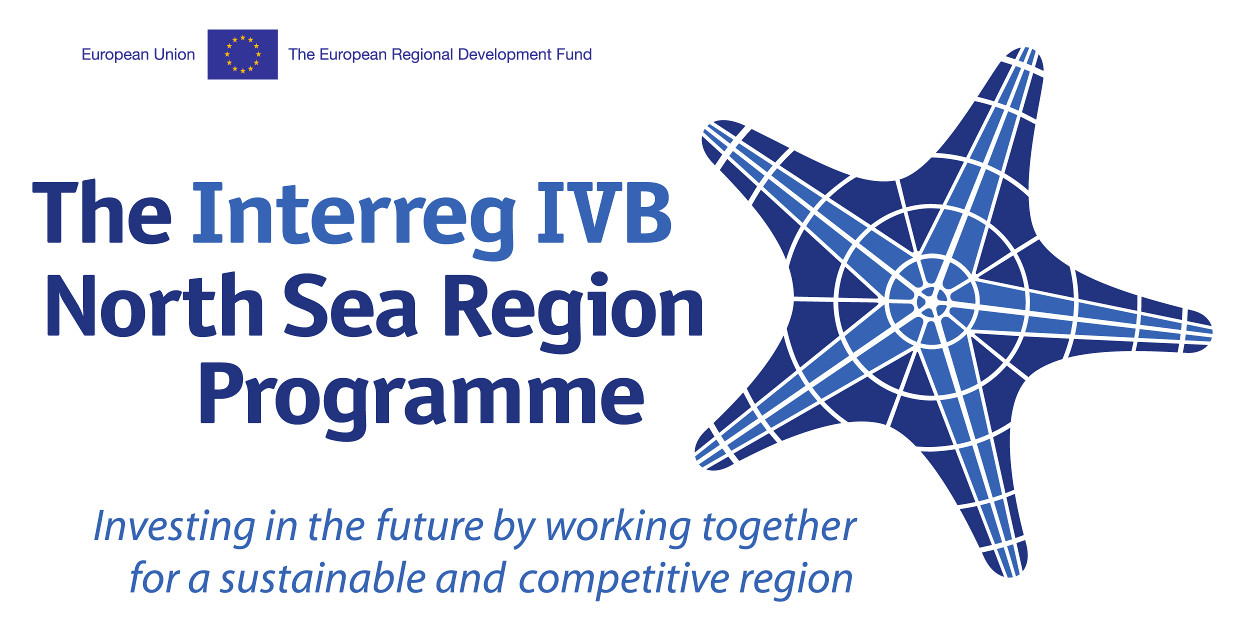Project activities will focus on the market implementation of Sustainable Supply Chain Management tool to defined, diversified bioenergy material streams within 5-6 NSR regional energy clusters. These will include existing material streams in need of additional SCM promotion or emerging technologies, for which supply chains yet need to be identified in order to reduce time to market. Both classical bioenergy materials and marine bioenergy sources will be included, whereby a major challenge will be to build new capacities for recent innovations in farming marine biota and capitalize on the potential for harvesting microbial biomass produced in marine and brackish farmed environments. In the light of rising global wheat prices and the resulting demand on farmland to serve the global market, a key focus of all activities will be on the mobilization of competitive alternative bioenergy resources, without which the declared political targets cannot be reached.
Activities are grouped in two interlinked levels: methodology and delivery. LEVEL 1 focusses on transnational cooperation on the application of supply chain management methodology to bioenergy initiatives whereby LEVEL 2 is directed to the regional delivery of functional bioenergy supply chains. The interaction between both levels constitutes a common approach to a common challenge at the same time ensuring that real progress is made visible in the regions. Activities have thus been aligned to the decentralisation strategy central to renewable energy promotion and sustainable regional development goals.
- LEVEL 1: The SSCM business model will be adapted to the specific material streams selected by the participating regions. The proven analytical and control tools serve to ensure that the entrepreneurial initiative leads to a win-win-win situation with sustainable business, social and ecological performance rates. The business model will be applied in parallel to differentiated blue-green energy clusters in the Region and ensure transfer of management expertise between the clusters and identify market interdependences, thereby contributing to their joint (co-operative) success.
- LEVEL 2: Pre-project consultations have pinpointed the following supply chains as pilot initiatives representative of the Region's bionenergy potential:
- Marine, salt-water energy crops/blending of green and blue biomasss (Oldenburg)
- Island bioenergy network (Finnoy)
- Bionenergy network infrastructure for new settlements (Strand, Suldal)
- Green gas grid / Clean Fuel Concept (Fyrbodal)
- Wood fueling of commercial enterprises (Northumberland)
- Biowaste energy recovery (Northumberland)
- Community bioenergy network (Central Jutland)
Details of the pilot projects are included in appendices 5-9. Counterparts for each regional initiative have been identified in each partner consortium, e.g. the Swedish Maritme Research Centre in Fyrbodal and the world's largest testing facilities for new bioenergy applications at the Research Centre Foulum in Tjele and waste wood deployment market research in Ryfylke. Hence cooperation within the pilot projects will focus on complementing the regional initiatives with transnational expertise and the adoption of the solutions found in the other regions. This two-way transfer will involve direct stakeholder exhange.
As a final outcome substantiated and consolidated investment plans based on commercially viable bioenergy supply chains will be presented to enable the successful further exploitation of the region’s blue-green low-carbon energy resources.
The interaction between the two activity levels is documented in the phase structure outlined below. Each phase will be driven by its own objectives and feature its own communication agenda to provide maximum visibility in the coastal communities and to commit regional development stakeholders.< p/>
The project is structured in 8 phases with distinct assignments and outcomes:
- PHASE 1 Initiation will provide an updated overview of regional bionergy markets, install all necessary organisational and administrative structures, select material streams for phase 2 and a working consensus on methodology, i.e. fine-tuning of the SSCM tool to meet regional needs and enable a uniform approach to assessing and optimising bionergy waste streams.
- PHASE 2 Supply Chain Analysis is focussed on the application of the supply chain analysis tool to specific regional business clusters and the establishment of a transnational overview.
- PHASE 3 Supply chain mobilization takes off from the performance analysis of the investigated supply chains, their deficits and a structured evaluation of potential options, see annex 3. The outcomes will consist of defined business optimization strategies in each region.
- PHASE 4 Pilot optimization projects is based on the preparatory work in phases 2 and 3 and comprises the pursuit of regional business plans covering key aspects of bioenergy supply chain management. These include field suitability testing of alternative, competive and sustainable energy crops and waste material and the establishment of functional bioenergy supply grids.
- PHASE 5 North Sea Transfer establishes direct stakeholder interaction between the regional pilot projects with a view to transferring expertise gained through the pilot projects at stakeholder level.
- PHASE 6 Evaluation is a four-stage programme - continuous, business, scientific and strategic - designed to enhance the effectiveness and transferrability of the SSCM business model.
- PHASE 7 Communication is based on a network communication strategy extended to include regional and European multipliers aimed at widespread adoption of the business model to promote diverse bioenergy initiatives.
- PHASE 8 Project Management provides reliable coordination of the transnational strategy and ensures deliveries


